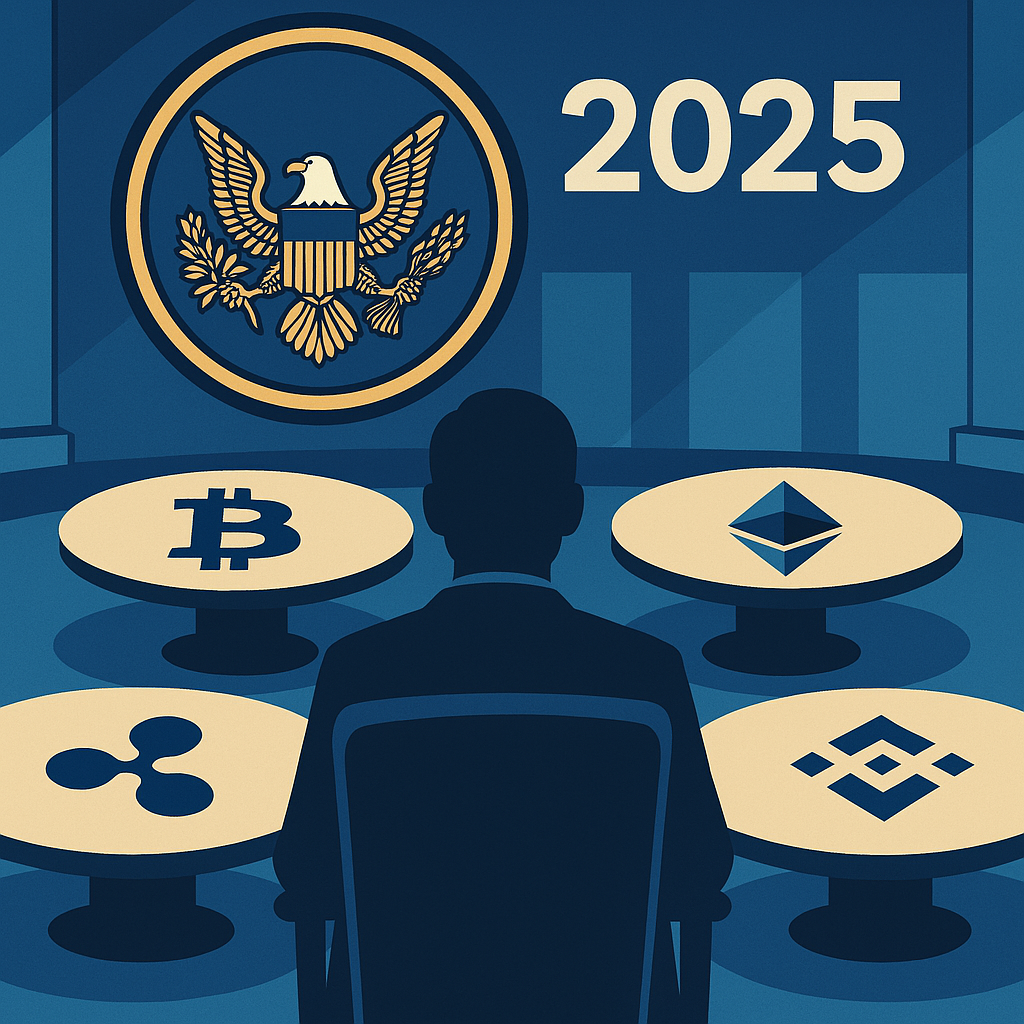Introduction
In a pivotal move signaling the U.S. government’s intensifying focus on the cryptocurrency sector, the U.S. Securities and Exchange Commission (SEC) has announced plans to host four more dedicated roundtables this year. These discussions will delve into the most pressing areas shaping the digital asset space today: cryptocurrency trading, custody, tokenization, and decentralized finance (DeFi).
This initiative marks a new chapter in the SEC’s ongoing attempt to clarify the regulatory landscape for digital assets. It also arrives amid mounting pressure from lawmakers, market participants, and innovators to provide clear, consistent, and forward-thinking rules that encourage innovation while safeguarding investors.
The Evolution Of The SEC’s Stance On Crypto Regulation
The SEC’s relationship with the crypto space has been complex. Historically cautious, the agency has increased its regulatory scrutiny over the last few years. High-profile lawsuits involving platforms like Ripple, Coinbase, and Binance have reflected a regulatory body grappling with the fast-paced evolution of decentralized technologies.
However, the recent announcement marks a strategic pivot—a willingness to engage directly with industry stakeholders rather than relying solely on enforcement actions. These upcoming roundtables are being organized by the SEC’s Strategic Hub for Innovation and Financial Technology (FinHub) in coordination with the agency’s Crypto Assets and Cyber Unit.
What We Know About The 2025 Crypto Roundtables?
Topics of Discussion
According to the SEC’s official communication and coverage from Cointelegraph, CoinDesk, and The Block, each roundtable will focus on a distinct theme:
- Crypto Trading Practices and Market Integrity
- Digital Asset Custody Rules and Infrastructure
- Tokenization of Real-World Assets (RWAs)
- Regulating DeFi Platforms and Protocols
These sessions are not mere technicalities. They will directly impact how platforms operate, how investors engage with crypto, and how regulators shape the future legal framework for blockchain technologies in the U.S.
Timing and Format
The roundtables are scheduled to take place throughout Q2 and Q3 of 2025, with the first expected in early May. They will be conducted as hybrid events—open to the public and featuring participation from industry experts, legal scholars, developers, crypto firms, and consumer protection organizations.
The SEC has promised transparency and open dialogue, with full transcripts and summaries to be made public after each event.
The Four Pillars Of Regulatory Dialogue
Let’s break down the four areas these roundtables aim to tackle, and why they matter for the future of crypto.
1. Cryptocurrency Trading: The Case for Market Structure Reform
Cryptocurrency trading has grown from a fringe experiment into a trillion-dollar global marketplace. Yet, U.S. regulators argue that the infrastructure supporting these markets lacks the robust investor protections found in traditional securities trading. Issues on the table:
- Should centralized crypto exchanges be subject to the same rules as securities brokers and clearinghouses?
- What constitutes market manipulation in crypto?
- How can regulators ensure transparency in token listings and delistings?
- What role should algorithmic trading and bots play?
The SEC is expected to seek input from platforms like Coinbase, Kraken, Robinhood Crypto, and institutional trading firms operating in crypto derivatives and spot markets.
Industry’s concern: Overregulation could drive liquidity offshore, pushing innovation outside U.S. borders.
2. Digital Asset Custody: Building a Trustworthy Infrastructure
Custody is a foundational aspect of financial markets. In crypto, where users often act as their own banks, the concept of custody is even more complex. Key questions to be addressed:
- How should crypto assets be held by third parties on behalf of clients?
- What safeguards should exist for cold wallets and private key management?
- Can custodians be both neutral and compliant under federal law?
- How can insured, institutional-grade custody solutions evolve?
The roundtable will also explore whether traditional banking institutions like Fidelity, BNY Mellon, and Anchorage Digital can play a bigger role as trusted crypto custodians under revised regulations.
3. Tokenization: Bridging Real-World Assets with Blockchain
Tokenization—the process of creating blockchain-based representations of physical assets—is expected to be a central force in the next generation of financial services. Discussion topics include:
- How should tokenized real estate, equities, or commodities be regulated?
- Should tokenized securities be treated differently from native crypto assets?
- What frameworks exist for fractional ownership and secondary market trading of tokenized assets?
- What roles do smart contracts play in enforcing token rights?
With large financial institutions such as BlackRock, JPMorgan, and HSBC exploring tokenized products, this roundtable could shape how tokenization moves from pilot projects to mainstream adoption.
4. DeFi Platforms: Innovation Meets Regulation
Perhaps the most controversial and disruptive area in crypto, DeFi (Decentralized Finance) will take center stage in one of the SEC’s most anticipated roundtables. DeFi challenges traditional notions of financial intermediaries and introduces new models of peer-to-peer lending, automated market making, and protocol governance. SEC’s key challenges:
- How can regulators enforce rules in decentralized environments?
- Are DeFi developers liable for protocol outcomes?
- Should DeFi protocols register as broker-dealers or exchanges?
- How can anti-money laundering (AML) and know-your-customer (KYC) compliance be built into autonomous systems?
The SEC is expected to consult with DeFi developers, security experts, and DAO (Decentralized Autonomous Organization) governance advocates.
A New Era Of Policy Making: Collaborative And Iterative
The crypto roundtables reflect a broader shift in how regulators approach complex technologies. Rather than imposing immediate regulations, agencies are now opting for dialogue-driven, iterative policy making—a model inspired by global tech governance trends.
International comparison
- The UK’s FCA launched its “CryptoSprint” sessions, mirroring the SEC’s new approach.
- Singapore, Switzerland, and the EU have adopted collaborative public-private partnerships to build digital asset policy.
- The G20’s Financial Stability Board (FSB) is calling for global standards on tokenized assets and DeFi.
- This global context underscores the importance of the SEC’s move—not just for U.S. markets, but for the entire global crypto ecosystem.
What This Means For Crypto Investors And Builders?
For investors, these roundtables could determine:
- How assets are classified and taxed?
- Which tokens are considered securities?
- What platforms remain legally accessible to U.S. users?
For developers and entrepreneurs, the outcomes will influence:
- The legality of protocol operations
- Licensing and reporting obligations
- Market viability of tokenized business models
The roundtables could lead to new rulemaking initiatives, interpretive guidance, or even legislative proposals sent to Congress later in 2025.
Final Thoughts
The SEC’s decision to hold four targeted roundtables is a watershed moment in U.S. crypto regulation. Whether this marks a genuine shift toward regulatory clarity or simply a strategic repositioning remains to be seen. But what’s clear is that the crypto industry will be watching closely—and participating actively.
As 2025 unfolds, regulators, investors, and builders alike will have the opportunity to shape a future where innovation and consumer protection aren’t mutually exclusive, but mutually reinforcing.
For the crypto industry to thrive in the U.S., this dialogue must be more than just symbolic. It must be structured, inclusive, and above all—responsive to the pace of change in this revolutionary sector.



